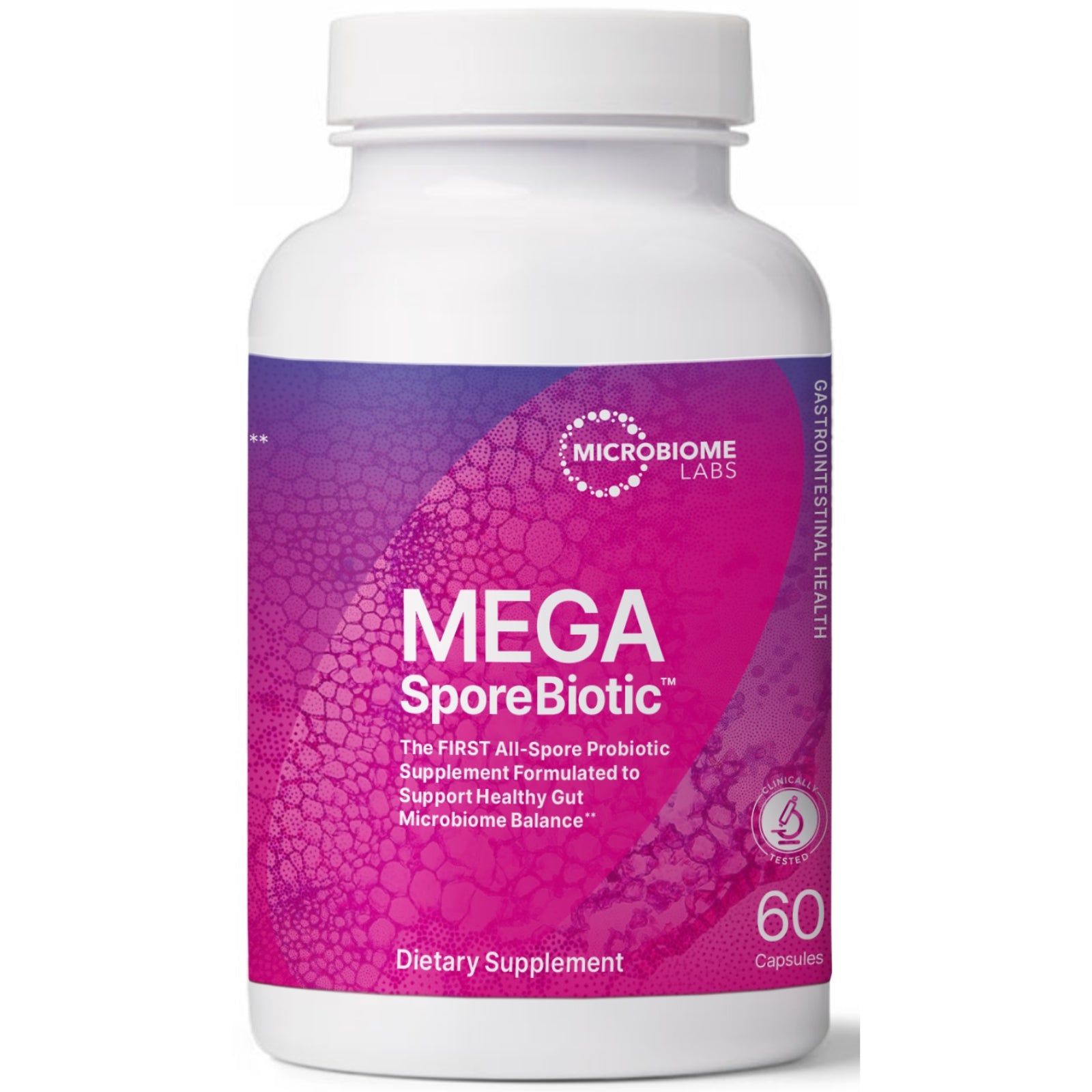6 Reasons Women Should Take a Probiotic

As women, we’re constantly seeking balance. Balancing our families and careers, time and energy, work and fun can be a struggle. But balancing that delicate microbiome in our guts doesn’t have to be a challenge, thanks to probiotics.
Probiotics are “live microorganisms that, when administered in adequate amounts, confer a health benefit on the host.” There are many myths about probiotics, but the health benefits aren’t one of them. If you’re curious why you should consider taking a daily probiotic and how it can benefit you, consider the following six reasons.
-
Probiotics support immune health.
It’s a well-known stereotype that women tend to put others first. The downside of this is that we don’t always take the time to take care of ourselves. The gut plays an active role in immune health, with intestinal bacteria helping to regulate immune cell activity. Taking a daily probiotic may be helpful for supporting immune function.
-
Probiotics can provide self-care for “down there.”
Yes, that “down there.” The vagina is an ecosystem that requires a delicate balance, just like the gut. Luckily, there are clinically researched probiotic strains that have been shown specifically to impact feminine health.
Two such probiotic strains are Lactobacillus rhamnosus GR-1® and Lactobacillus reuteri RC-14®, which work by traveling through the digestive tract to the vagina.5 Research shows that once there, the two probiotic strains work to help maintain a healthy vaginal environment by increasing the number of good bacteria.
-
Certain probiotic strains support weight maintenance.
Most people know that a healthy weight correlates to a healthy life.8 But did you know that probiotics can help you maintain that healthy weight? One probiotic strain in particular, Bifidobacterium lactis B-420™, has shown in clinical research that it can help weight maintenance by controlling body fat.
-
Probiotics support gut health.
Women aren’t the only ones whose guts benefit from daily probiotics; this one’s for everyone, even kids! Much research has been done on the benefits of probiotics on gut and digestive health, so it’s no wonder it’s a common reason practitioners recommend this first line therapy for patients seeking digestive support. Look for strains like Bifidobacterium lactis Bi-07® and Lactobacillus acidophilus NCFM®, both of which have been researched for their relationship to good gut health.
-
Probiotics can help get mild diarrhea under control.
Sometimes we just need a little help getting back to regular. Luckily, there have been many studies done on the relationship between probiotics and gastrointestinal comfort.12 Probiotics like Saccharomyces boulardii and the strain Bifidobacterium lactis HN019 have been studied extensively for their gastrointestinal benefits.
-
Probiotics may help support mood & cognition.
Our guts and brains communicate through what’s known as the gut-brain axis. In other words, just as stress or unhappiness can lead to an upset tummy, an upset microbiome can affect our mood. The opposite works as well: Recent studies have shown that probiotics may help support mood as well as cognition, even to the point of lowering stress levels.
References:
1. Hill C et al. Natur Revs Gastro Hepatol. 2014;11(8):506—514.
2. Bermudez-Brito M et al. Ann Nutr Metab. 2012;61(2):160-174.
3. Kang E-J et al. Korean J Fam Med. 2013;34(1):2-10.
4. Reid G et al. FEMS Immunol Med Microbiol. 2001;32(1):37-41.
5. Reid G et al. FEMS Immunol Med Microbiol. 2006;30(1):49-52.
6. Reid G et al. J Med Food. 2004;7(2):223-228.
7. Reid G et al. FEMS Immunol Med Microbiol. 2003;35(2):131-134.
8. Loman T et al. BMC Public Health. 2013;13:259.
9. Stenman LK et al. EBioMedicine. 2016;13:190-200.
10. Ringel-Kulka T et al. J Clin Gastroenter. 2011;45:518-525.
11. Leyer GJ et al. Pediatrics. 2009;124:e172-179.
12. Vitetta L et al. Inflammopharmacol. 2014;22(3):135-154.
13. Kelesidis T. Therap Adv Gastroenterol. 2012;5(2):111–125.
14. Waller PA et al. Scand J Gastroenterol. 2011;46(9):1057–1064.
15. Carabotti M et al. Ann Gastroenterol. 2015:28(2):203-209.
16. Papalini S et al. Neurobiology of Stress. 2019;10:100141.
17. Akbari E et al. Front Aging Neurosci. 2016.

